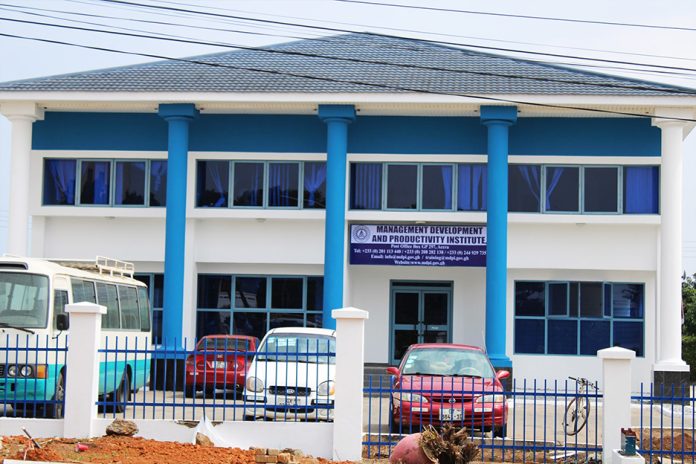The Management Development and Productivity Institute (MDPI) risks forfeiting the second phase of a key funding partnership with the German development agency, GIZ, due to the government’s failure to release over US$2 million in project funds, Director-General Prof. Elijah Yendaw has disclosed.
Speaking before Parliament’s Select Committee on Employment, Pensions and Labour on Thursday, Prof. Yendaw described the situation as dire, cautioning that the institute’s inability to access the frozen funds is crippling its operations and jeopardising donor confidence.
“The GIZ-funded project has ended, but we owe vendors, external and internal consultants, hotels and other service providers,” he said.
“The funds were not internally generated – they were project-based and were meant to facilitate critical training and enterprise support.
“Now, we risk losing the second phase of this partnership scheduled for renewal discussions by October.”
MDPI, a state institution under the Ministry of Employment and Labour Relations, is one of the least funded agencies and has long depended on its Internally Generated Funds (IGF) to survive.
However, the sweeping of its account — a routine government fiscal measure – has severely undermined its capacity to meet obligations tied to donor-funded projects.
Prof. Yendaw warned that GIZ has already issued threats to escalate the issue to its international monitors, a move that could spark diplomatic friction and tarnish Ghana’s credibility with international partners.
“We are pleading that this particular account be restored so that we can meet these emergency obligations. Without this, we cannot negotiate the next funding phase. And this could destroy years of effort and partnerships,” he appealed.
In a detailed presentation, the Director-General also lamented government’s lack of patronage for MDPI’s training services, often awarding such contracts to private consultancy firms with questionable standards. Despite its mandate to develop productivity-enhancing strategies for both public and private sectors, MDPI remains underutilized by the state.
“MDPI was established in 1967 through collaboration with the ILO and UNDP to provide training, consultancy, research, and productivity studies. Yet, we are sidelined while the same government that owns us outsources work to mushroom consultancies,” Prof. Yendaw noted.
He also recounted the institute’s forced relocation from its original premises due to the Marine Drive Project, leaving it financially drained. A new three-storey permanent office is under construction, but incomplete due to lack of funds. A request for GH¢10 million from the Finance Ministry to complete the building is still pending.
Despite these setbacks, MDPI continues to offer training programs, including current sessions with mining giant Newmont Ghana. The institute has partnerships with local and international organizations such as the ILO, UNDP, JICA, NEPAD, and the Malaysian Productivity Corporation.
As the institute continues to grapple with cash constraints, Prof. Yendaw reaffirmed MDPI’s readiness to expand its research into national productivity indicators, calling for greater support from Parliament and the executive to help the Institute fulfill its mandate.
“MDPI has the capacity to help Ghana assess the true value of its workforce and the return on government investments. But we need financial stability to do that,” he emphasized.
Chairman of the Parliamentary Committee, Joseph Appiah Boateng, assured the MDPI that the committee would raise the issue with the Minister for Finance.
He clarified that the sweeping of accounts is a standard annual process and not targeted, but admitted that the delay in reversing the funds was problematic.
“It’s a challenge that needs urgent attention. We’ll take it up and follow through,” the chairman stated.









